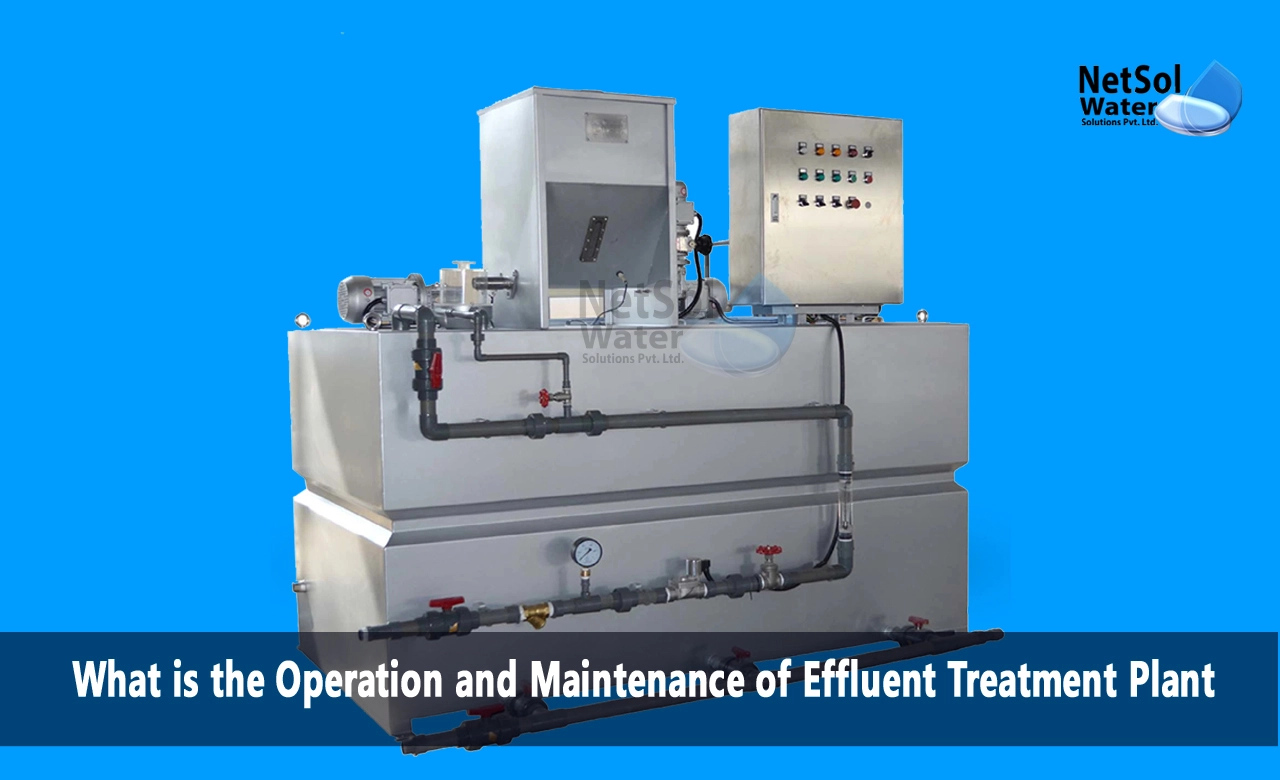What is the Operation and Maintenance of Effluent Treatment Plant?
In the present modern scene, the responsible management of effluents has turned into a foremost concern. Effluent treatment plants play a crucial role in mitigating the environmental impact of various industrial activities by treating wastewater before its safe release or reuse. In any case, the effective activity and meticulous maintenance of these plants are fundamental to guarantee their ideal performance and consistency with ecological guidelines. The basic aspects of effluent treatment plant operation and upkeep, shedding light on best practices and procedures to maximise their effectiveness.
Understanding Effluent Treatment Processes
Effluent treatment plants utilize a mix of physical, chemical, and biological processes to eliminate contaminants from wastewater successfully. Actual cycles include procedures like screening, sedimentation, and filtration to eliminate strong particles and suspended matter. Chemical processes, like coagulation, precipitation, and oxidation, facilitate the removal of dissolved contaminants like heavy metals and organic compounds. Biological processes, including activated sludge systems and membrane bioreactors, harness the power of microorganisms to break down organic matter and remove nutrients.
Understanding the particular treatment processes utilized at a specific plant is significant for improving its activity and support systems. Ordinary checking and examination of influent and effluent qualities, combined with process changes, guarantee that the plant reliably satisfies release guidelines and limits ecological effect.
Operational Considerations
The successful activity of an effluent treatment plant includes a huge number of elements that should be carefully managed. A few key functional contemplations include:
1. Process Control and Checking: Consistent observation and control of various process parameters, for example, pH, temperature, disintegrated oxygen levels, and chemical dosing, are fundamental for keeping up with ideal treatment productivity. Mechanized control frameworks and constant information procurement assume a fundamental part in such a manner.
2. Sludge Management: Sludge is a byproduct of various treatment processes and requires legitimate taking care of and removal. Effective sludge thickening, dewatering, and adjustment methods assist with diminishing the volume of slime and limit related costs.
3. Energy Productivity: Effluent treatment plants are energy-intensive operations, and optimizing energy usage is crucial for reducing operational costs and limiting the plant's carbon impression. Systems like energy recuperation from biogas, execution of energy-productive gear, and process optimization can add to further developed energy proficiency.
4. Personnel Training: Thoroughly prepared and educated administrators are fundamental for guaranteeing the smooth activity of effluent treatment plants. Regular preparation programs, standard working methods, and security conventions ought to be carried out to maintain a skilled workforce and promote a culture of excellence.
Maintenance Strategies
Preventive support is indispensable for guaranteeing the life span and reliable performance of effluent treatment plant components. An extensive upkeep program ought to include the accompanying key perspectives:
1. Asset Management: Creating and carrying out a powerful resource the executives plan is pivotal for following the condition and execution of plant gear, parts, and framework. This approach empowers proactive support and informed independent direction with respect to fix, substitution, or overhauls.
2. Predictive Maintenance: Predictive maintenance strategies, like vibration examination, infrared thermography, and oil investigation, allow for the early detection discovery of potential equipment failures, enabling timely remedial activities and limiting unplanned downtime.
3. Scheduled Maintenance: Regular scheduled maintenance activities, like gear examinations, oil, channel substitutions, and cleaning, assist with guaranteeing the ideal exhibition and expanded life expectancy of plant parts.
4. Spare Parts Management: Keeping a satisfactory stock of basic extra parts and consumables is fundamental for limiting disturbances and working with brief fixes or substitutions when required.
5.Corrosion Control: Effluent treatment plants are susceptible to corrosion because of the presence of different chemicals and harsh working circumstances. Executing corrosion control measures, like utilizing consumption safe materials, coatings, and cathodic security frameworks, can drag out the life expectancy of plant parts and foundation.
Conclusion
Taking everything into account, the viable activity and support of effluent treatment plants are pivotal for guaranteeing administrative consistence, limiting ecological effect, and streamlining asset use. By understanding the treatment processes, executing powerful functional techniques, and taking on far reaching support draws near, plant administrators can accomplish steady and solid execution. Regular monitoring, process optimization, energy efficiency initiatives, personnel training, asset management, predictive maintenance, scheduled maintenance, spare parts management, and corrosion control are key components that add to the fruitful activity and life span of effluent treatment plants. Embracing these accepted procedures upgrades functional productivity as well as advances ecological stewardship and maintainable modern practices.
Do you need an advice or assistance on selecting the best water and waste water treatment unit? We have solutions for all your problems!
Let us know your problem, our experts will make sure that it goes away.
For an assistance or related query,
Call on +91-965-060-8473 Or write us at enquiry@netsolwater.com



